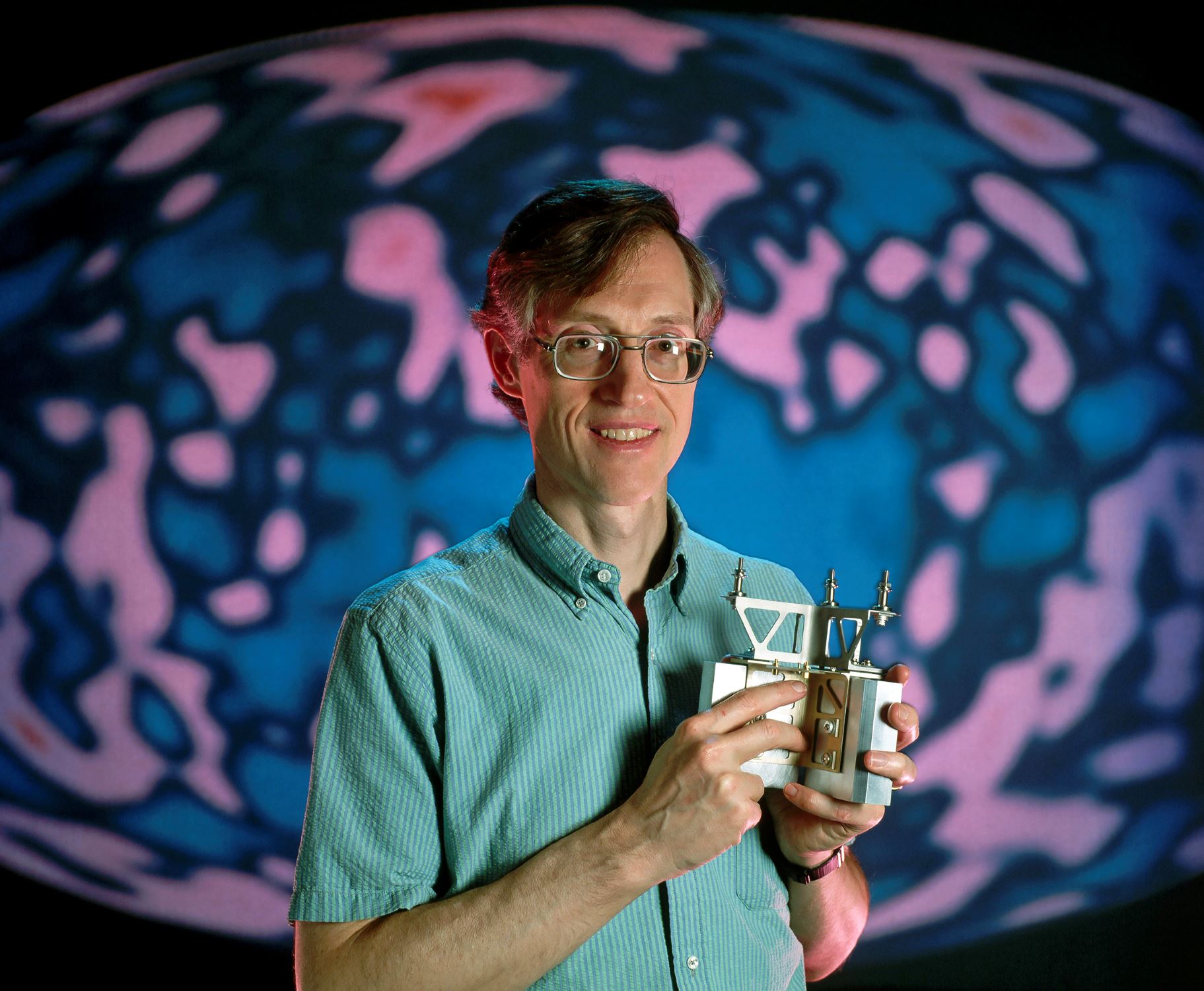
Dr. John C. Mather is a renowned scientist whose contributions to astrophysics have earned him international recognition. His groundbreaking work on the cosmic microwave background radiation and his role in the development of the NASA’s Wilkinson Microwave Anisotropy Probe (WMAP) have revolutionized our understanding of the universe.
But there is so much more to Dr. Mather than just his scientific achievements. In this article, we will delve into 19 astonishing facts about Dr. John C. Mather, shedding light on his personal life, career milestones, and his impactful contributions to the field of astrophysics.
Key Takeaways:
- Dr. John C. Mather won the Nobel Prize for studying the early universe and designing a satellite that showed evidence for the Big Bang theory, inspiring future scientists.
- Dr. Mather’s work on cosmic radiation and the James Webb Space Telescope has advanced our understanding of the universe, encouraging international collaboration and sparking curiosity in young minds.
Nobel Prize in Physics
Dr. John C. Mather was awarded the 2006 Nobel Prize in Physics for his groundbreaking work on the Cosmic Background Explorer (COBE) satellite.
Exploring the Early Universe
As a senior astrophysicist at NASA, Dr. Mather has dedicated his career to unraveling the mysteries of the early universe and understanding the formation of galaxies.
Mapping Cosmic Microwave Background Radiation
Dr. Mather played a pivotal role in designing the COBE mission, which successfully mapped the cosmic microwave background radiation, providing compelling evidence for the Big Bang theory.
Unveiling the Universe’s First Light
By studying the faint afterglow of the Big Bang, Dr. Mather discovered the first evidence of primordial heat, also known as the cosmic microwave background radiation.
Precursor to the James Webb Space Telescope
Due to the success of the COBE mission, Dr. Mather became a key figure in the development of the James Webb Space Telescope (JWST), the next-generation space observatory set to revolutionize our understanding of the universe.
Honored with Numerous Awards
In addition to the Nobel Prize, Dr. Mather has been recognized with numerous prestigious awards, including the NASA Distinguished Public Service Medal and the Harvey Prize in Science and Technology.
Commitment to Science Education
Dr. Mather is a passionate advocate for science education and has been actively involved in inspiring the next generation of scientists through lectures, seminars, and outreach programs.
Author and Co-author of Scientific Papers
Dr. Mather has published over 100 scientific papers in his illustrious career, contributing to our understanding of the early universe and cosmology.
Contributions to Space Instrumentation
Dr. Mather’s expertise extends to the field of space instrumentation, where he has made significant contributions in the development of advanced detectors and sensors used in astronomical observations.
Inspiring Collaborator
Known for his collaborative spirit, Dr. Mather has collaborated with scientists and researchers from around the world, fostering a sense of camaraderie and pushing the boundaries of scientific knowledge.
Educated at Renowned Institutions
Dr. Mather earned his Bachelor of Science degree in physics from Swarthmore College and went on to pursue his Ph.D. in physics at the University of California, Berkeley.
Recipient of the Gruber Foundation Cosmology Prize
In recognition of his transformative contributions to cosmology, Dr. Mather was awarded the Gruber Foundation Cosmology Prize in 2018.
Promoting International Collaboration
Dr. Mather has actively promoted international collaboration in space exploration and scientific research, working with scientists from various countries to advance our understanding of the universe.
Dedicated to the Advancement of Science
Throughout his career, Dr. Mather has remained dedicated to pushing the boundaries of scientific knowledge and has made significant contributions to the field of astrophysics.
Influence on Astrobiology Research
Dr. Mather’s work on the cosmic microwave background radiation has also had a profound impact on the field of astrobiology, providing valuable insights into the conditions necessary for the formation of life.
Inspiring the Next Generation
As a mentor and role model, Dr. Mather has inspired countless young scientists to pursue careers in astrophysics and has been instrumental in nurturing their passion for scientific exploration.
Visionary Leadership at NASA
Dr. Mather served as the Senior Project Scientist for the James Webb Space Telescope at NASA, providing visionary leadership and guiding the mission’s scientific goals.
Lifelong Quest for Knowledge
Driven by his insatiable curiosity, Dr. Mather continues to push the boundaries of scientific knowledge, always seeking new discoveries and insights into the workings of the universe.
Inspiring the World with Science
Through his groundbreaking research and unwavering dedication to the field of astrophysics, Dr. John C. Mather has inspired people around the world with the wonders of science and our place in the vast cosmos.
Conclusion
Dr. John C. Mather is truly an extraordinary individual whose contributions have revolutionized our understanding of the universe. His groundbreaking research on the cosmic microwave background radiation and his role in the development of the James Webb Space Telescope have earned him numerous accolades and prestigious awards, including the Nobel Prize in Physics. Dr. Mather’s perseverance, dedication, and passion for scientific exploration serve as an inspiration for aspiring researchers and scientists around the world. His work continues to push the boundaries of human knowledge and ignite the curiosity of millions. By unraveling the mysteries of the universe, Dr. John C. Mather has left an indelible mark on the scientific community and has paved the way for future discoveries that will forever change our perception of the cosmos.
FAQs
Q: What is Dr. John C. Mather best known for?
A: Dr. John C. Mather is best known for his groundbreaking research on the cosmic microwave background radiation, which provided strong evidence for the Big Bang theory and earned him the Nobel Prize in Physics in 2006.
Q: What is the James Webb Space Telescope and what role did Dr. Mather play in its development?
A: The James Webb Space Telescope is a large, space-based observatory set to launch in 2021. Its main objective is to study the formation of stars and galaxies, the evolution of galaxies, and the formation of planets. Dr. John C. Mather played a crucial role in the development of this telescope as the project’s chief scientist and led efforts to define its scientific goals and observe through the use of infrared technology.
Q: What other awards and honors has Dr. Mather received?
A: In addition to the Nobel Prize in Physics, Dr. John C. Mather has been honored with numerous awards, including the NASA Exceptional Scientific Achievement Medal, the Benjamin Franklin Medal in Physics, and the Harvey Prize in Science and Technology.
Q: How has Dr. Mather’s work influenced the field of astrophysics?
A: Dr. John C. Mather’s work has had a profound impact on the field of astrophysics. His research on the cosmic microwave background radiation has provided crucial insights into the early universe and has solidified the Big Bang theory. Moreover, his leadership in the development of the James Webb Space Telescope has opened up new avenues for studying the universe in unprecedented detail.
Q: What is Dr. Mather’s advice for aspiring scientists?
A: Dr. John C. Mather encourages aspiring scientists to pursue their passion for knowledge and to never be afraid of asking questions. He emphasizes the importance of perseverance and dedication, as scientific breakthroughs often require years of hard work and overcoming obstacles. He also underscores the significance of collaboration and the power of teamwork in scientific endeavors.
Delving into the fascinating world of astrophysics, Dr. John C. Mather's groundbreaking work has shed light on the mysteries of the universe. His contributions to understanding cosmic microwave background radiation have revolutionized our knowledge of the early universe. Mather's expertise in astrophysics has earned him numerous accolades, including the Nobel Prize in Physics. His involvement with the COBE satellite has provided invaluable insights into the temperature fluctuations of the cosmic microwave background, paving the way for future discoveries in cosmology.
Was this page helpful?
Our commitment to delivering trustworthy and engaging content is at the heart of what we do. Each fact on our site is contributed by real users like you, bringing a wealth of diverse insights and information. To ensure the highest standards of accuracy and reliability, our dedicated editors meticulously review each submission. This process guarantees that the facts we share are not only fascinating but also credible. Trust in our commitment to quality and authenticity as you explore and learn with us.


